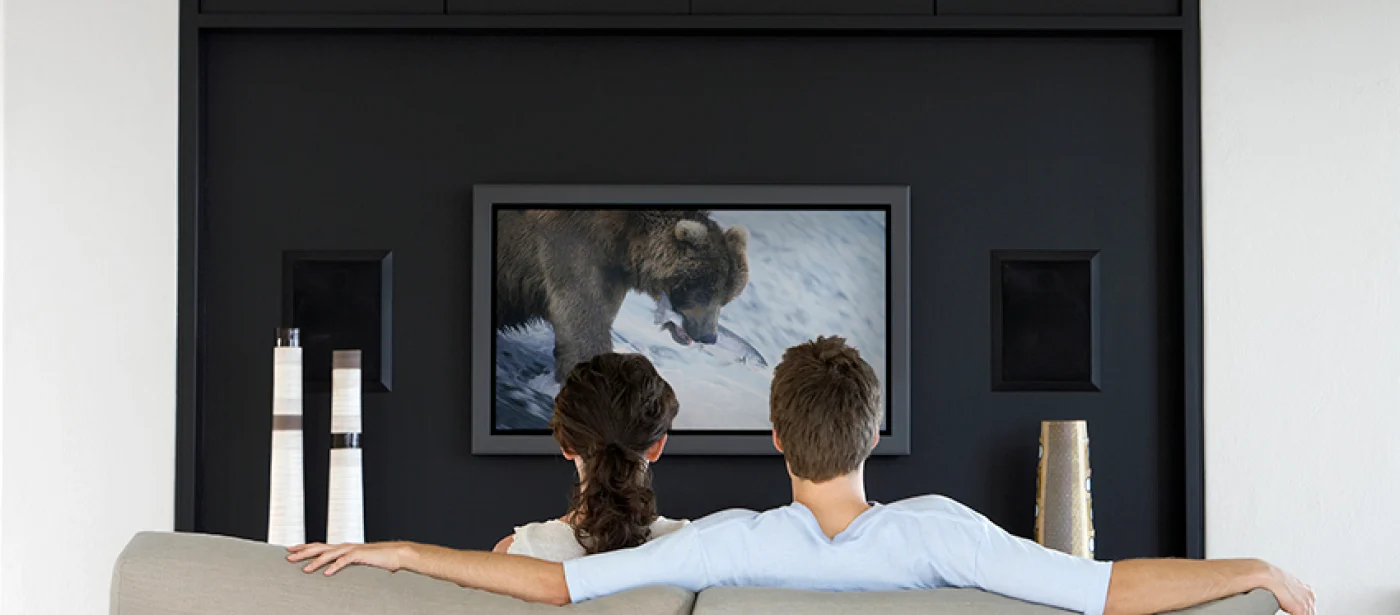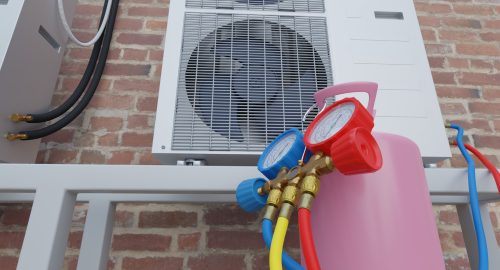You may think home theaters are reserved for extravagant Beverly Hills mansions, but that’s not the case. If you stick to the essentials, it’s easier than ever to get one for yourself. To get you started, we’ve outlined the basics of building a home theater.
Screen: Start with a Good TV
The screen is the centerpiece, so you want quality. Choose a smart TV, at least 55 inches in size, that supports both 4K and HDR for a crystal-clear image. With today’s wide range of available models, you’re sure to find a model that’s best for you, your budget, and your setup.
Sound System: Don’t Splurge on Speakers
Resist the temptation to splurge on your sound system. Bigger isn’t always better, and home theater systems default to a 5.1 (five satellite speakers and one subwoofer) anyway. What’s more important is how it’ll be set up, so figure out the wiring and layout plan for your system before you purchase anything.
Receiver: Pay for Quality
Here’s where you’ll want to spend a little more cash. This is the heart of your theater. The receiver takes audio and video signals from your media players (e.g. Blu-ray players, video game consoles, cable boxes, etc.) and processes them to drive your speaker and display systems. It connects all parts of the theater system, so you don’t want to compromise.
Media Player(s): Supply the Entertainment
This part really comes down to preference. If you’re not much of a gamer, you probably don’t have (or want) a PlayStation or Xbox. For streaming, you may want a wireless media device such as Roku, Amazon Fire TV Stick, or Chromecast.
While Blu-ray players and discs tend to be more expensive than standard DVD players and discs, they’re capable of playing both as well as CDs. Many can also play audio, video, and still images on flash drives via USB port, and almost all feature internet streaming capability. Again, the media players that go into your home theater are up to you.
Additional Considerations
The screen, sound, receiver, and media are key components of building a home theater system. However, there are a few other important things to consider:
- Seating: Where/how will you relax and enjoy the show? You don’t need theater seating, but a nice recliner or couch will do the trick.
- Remote(s): How will you control all the devices? Rather than managing them individually, consider investing in a universal remote.
- Gadget Storage: Where will everything be stored? Find or build a good cabinet to store your receiver, media players, and other devices.
- Lighting: How do you want the room lit? If there’s a window, you may need blackout curtains.
While they’re more affordable and accessible than ever, it’s still recommended to consult a home theater design and installation professional to make sure it’s done safely and properly. The experts at Stafford Home Service Inc. are here for all your home entertainment needs, so contact us today!








